
Setúbal: Portugal's Coastal Gem
Setúbal, located on the northern bank of the Sado River estuary, is a city known for its stunning natural scenery and rich history. This charming coastal town offers an authentic Portuguese experience, complete with picturesque streets, vibrant markets, and a laid-back atmosphere. Visitors can explore the Arrábida Natural Park, a lush green haven perfect for hiking and enjoying breathtaking views of the Atlantic Ocean. The park is home to the famous Portinho da Arrábida beach, where turquoise waters meet golden sands. Additionally, Setúbal boasts beautiful beaches such as Praia da Figueirinha and Praia de Galápos, ideal for sunbathing and swimming. History enthusiasts will appreciate the city's well-preserved monuments, including the 16th-century São Filipe Castle and the Gothic-style Monastery of Jesus. The city's lively fish market, Mercado do Livramento, is a must-visit for food lovers, offering a wide array of fresh seafood and local delicacies. Setúbal is also renowned for its wine production, particularly the sweet Moscatel de Setúbal. Wine tours and tastings are available at many local vineyards, providing a delightful experience for oenophiles. With its blend of natural beauty, cultural heritage, and culinary delights, Setúbal is an enchanting destination that promises an unforgettable visit.
Local tips in Setúbal
- Visit the Arrábida Natural Park early in the morning to avoid the crowds and enjoy the serene beauty.
- Try the local specialty, choco frito (fried cuttlefish), at one of the many seaside restaurants.
- Take a boat trip to see the resident dolphins in the Sado River estuary.
- Wear comfortable shoes to explore the cobblestone streets and historical sites of the city.
- Visit Mercado do Livramento on a weekday morning for the freshest seafood and a more relaxed atmosphere.
Setúbal: Portugal's Coastal Gem
Setúbal, located on the northern bank of the Sado River estuary, is a city known for its stunning natural scenery and rich history. This charming coastal town offers an authentic Portuguese experience, complete with picturesque streets, vibrant markets, and a laid-back atmosphere. Visitors can explore the Arrábida Natural Park, a lush green haven perfect for hiking and enjoying breathtaking views of the Atlantic Ocean. The park is home to the famous Portinho da Arrábida beach, where turquoise waters meet golden sands. Additionally, Setúbal boasts beautiful beaches such as Praia da Figueirinha and Praia de Galápos, ideal for sunbathing and swimming. History enthusiasts will appreciate the city's well-preserved monuments, including the 16th-century São Filipe Castle and the Gothic-style Monastery of Jesus. The city's lively fish market, Mercado do Livramento, is a must-visit for food lovers, offering a wide array of fresh seafood and local delicacies. Setúbal is also renowned for its wine production, particularly the sweet Moscatel de Setúbal. Wine tours and tastings are available at many local vineyards, providing a delightful experience for oenophiles. With its blend of natural beauty, cultural heritage, and culinary delights, Setúbal is an enchanting destination that promises an unforgettable visit.
When is the best time to go to Setúbal?
Iconic landmarks you can’t miss
Parque Natural da Arrábida
Explore the breathtaking landscapes and serene beaches of Parque Natural da Arrábida, a stunning national park in Portugal's coastal paradise.
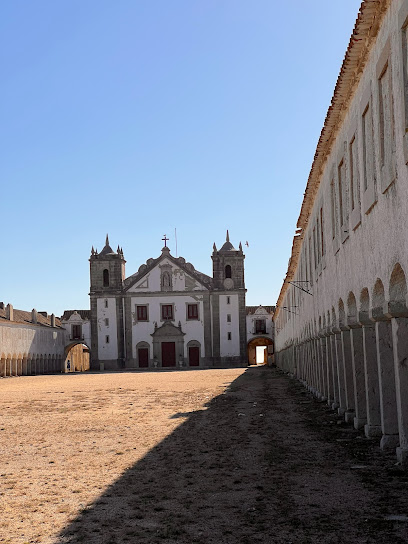
Mercado do Livramento
Experience the vibrant atmosphere and culinary delights of Mercado do Livramento, Setúbal's premier market showcasing local flavors and culture.
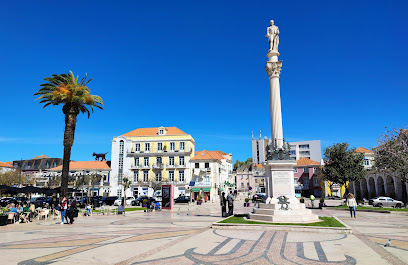
Parque Urbano de Albarquel
Explore Parque Urbano de Albarquel, Setúbal's premier urban park for nature lovers, offering lush landscapes and stunning views of the beautiful coastline.
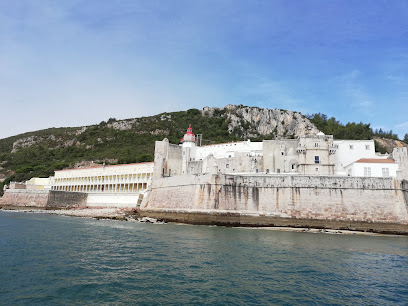
Forte de São Filipe
Discover the breathtaking views and rich history at Forte de São Filipe, a stunning fortress in Setúbal, Portugal.
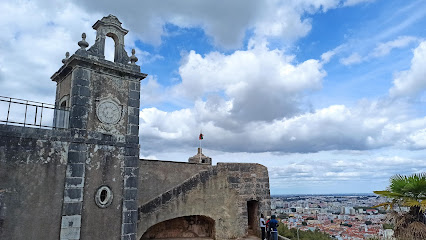
Palmela's Castle
Explore the historic Palmela's Castle, a magnificent fortress with stunning views, rich history, and cultural experiences in Portugal.
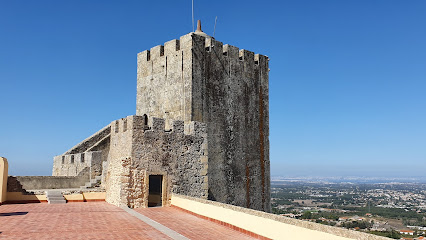
Reserva Natural do Estuário do Sado
Explore the stunning landscapes and diverse wildlife of Reserva Natural do Estuário do Sado, a must-visit nature preserve in Setúbal, Portugal.
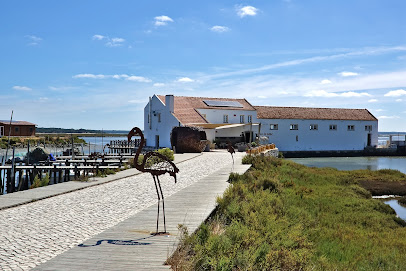
Castelo de Sesimbra
Experience the breathtaking views and rich history of Castelo de Sesimbra, a stunning fortress overlooking the Atlantic coast.
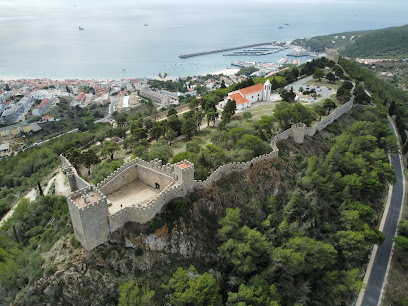
Casa da Baia de Setubal
Explore Setubal's rich culture at Casa da Baia, your gateway to local wines, events, and historical insights in this charming coastal town.
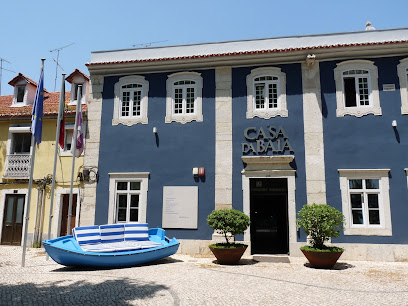
Mourisca Water Mill
Explore the enchanting Mourisca Water Mill, an ethnographic museum in Setúbal showcasing the region's rich agricultural heritage and traditional milling techniques.
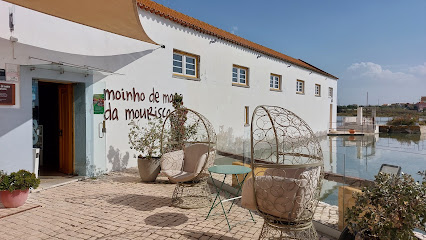
Parque do Bonfim
Explore the lush landscapes and artistic charm of Parque do Bonfim, a serene park in Setúbal, perfect for relaxation and cultural experiences.
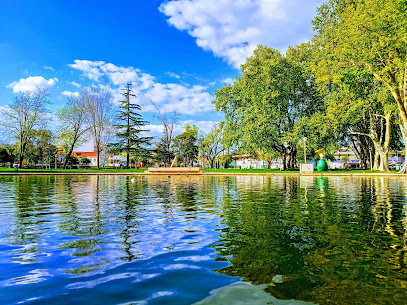
Albarquel
Discover the tranquil beauty of Albarquel Beach in Portugal, where golden sands meet crystal-clear waters for a perfect day of relaxation and exploration.
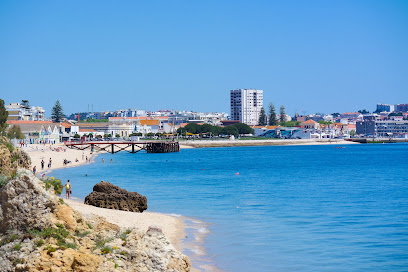
Santuario de Nossa Senhora do Cabo Espichel
Discover the serene beauty and spiritual significance of Santuario de Nossa Senhora do Cabo Espichel, a stunning coastal sanctuary in Portugal.
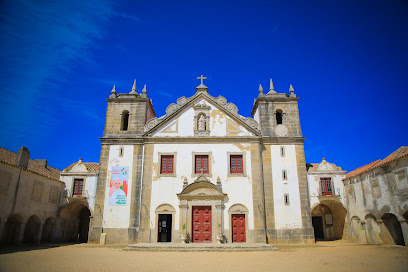
Moscatel de Setúbal Experience
Discover the rich flavors of Setúbal's iconic Moscatel wine and indulge in delightful tapas at this charming bar in the heart of the city.
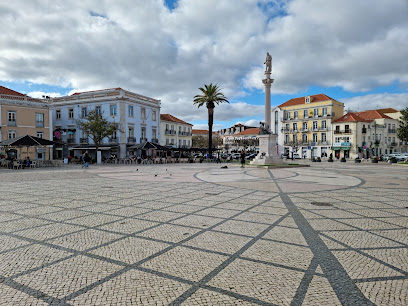
Praça de Bocage
Discover the charm of Praça de Bocage, Setúbal's historical landmark, where culture, relaxation, and local flavors come together in a vibrant square.
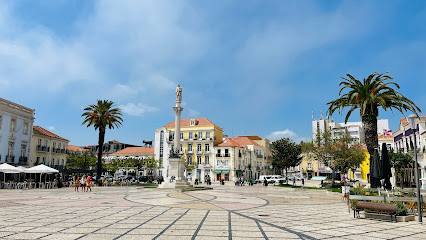
Bacalhôa - Vinhos de Portugal
Explore Bacalhôa Winery in São Lourenço, Portugal—an exquisite destination for wine lovers and cultural enthusiasts in the heart of the country's wine region.
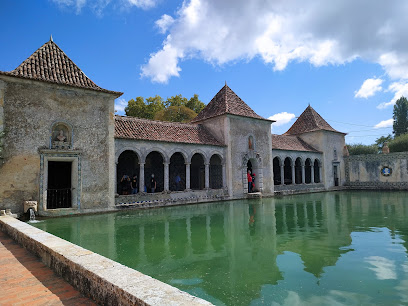
Unmissable attractions to see
Praça do Comércio
Explore Praça do Comércio, Lisbon's historic plaza, where stunning architecture meets vibrant culture along the Tagus River.

Belém Tower
Discover the enchanting Belém Tower, a UNESCO World Heritage site, where history and stunning architecture converge along the banks of the Tagus River.

Oceanário de Lisboa
Discover the captivating marine life at the Lisbon Oceanarium, a top tourist attraction showcasing the wonders of the ocean.

Castelo de São Jorge
Discover the history and scenic beauty of Lisbon at the iconic Castelo de São Jorge, a castle steeped in culture and breathtaking views.

Estádio do Benfica
Experience the thrill of Portuguese football at Estádio do Benfica, a legendary stadium and museum celebrating the rich history of SL Benfica.
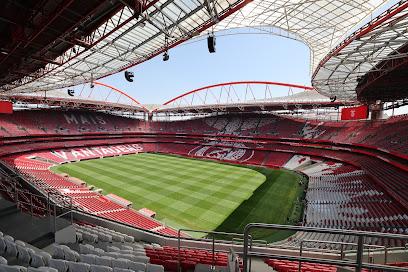
LX Factory
Experience the vibrant creative hub of LX Factory in Lisbon, where art, culture, and gastronomy come together in a unique urban setting.
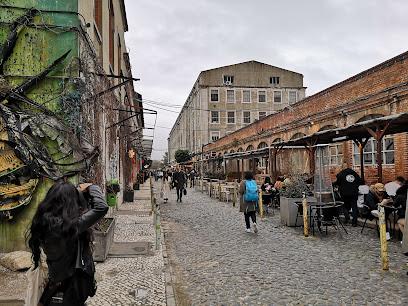
Jerónimos Monastery
Explore the Jerónimos Monastery, a stunning UNESCO World Heritage site in Lisbon showcasing Portugal's maritime history and exquisite architecture.

Santa Justa Lift
Experience the breathtaking views and unique architecture of Lisbon from the iconic Santa Justa Lift, a must-see tourist attraction.
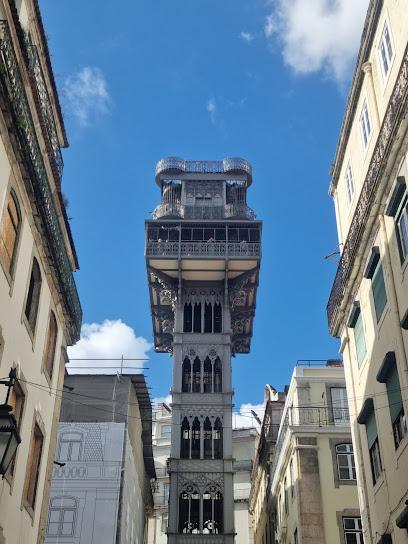
Parque Eduardo VII
Explore the lush landscapes and stunning views of Parque Eduardo VII, a tranquil urban park in the heart of Lisbon perfect for relaxation and exploration.
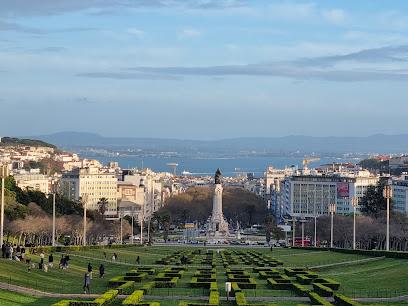
Jardim Zoológico
Discover the beauty of wildlife at Jardim Zoológico in Lisbon, where conservation meets adventure amidst stunning exhibits and lush gardens.
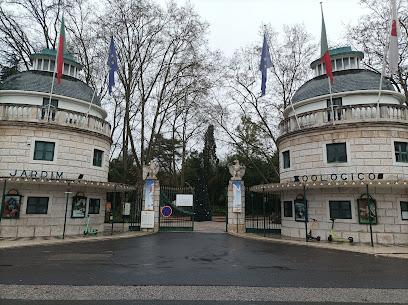
Sanctuary of Christ the King-Portugal
Discover the breathtaking Sanctuary of Christ the King, a monumental shrine with stunning views of Lisbon and rich historical significance. A must-visit attraction!
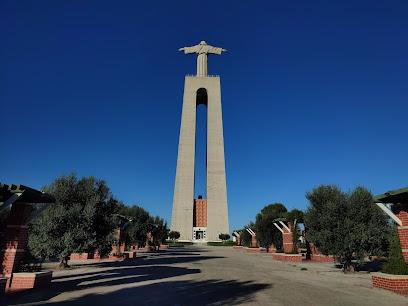
Miradouro de Santa Luzia
Experience the panoramic beauty of Lisbon at Miradouro de Santa Luzia, a must-visit observation deck with stunning views and cultural charm.
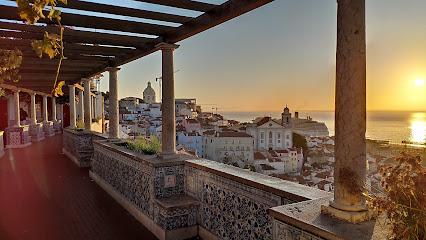
MEO Arena
Discover Lisbon's MEO Arena, a top-notch venue for concerts, sports, and events that captures the vibrant culture of the city.
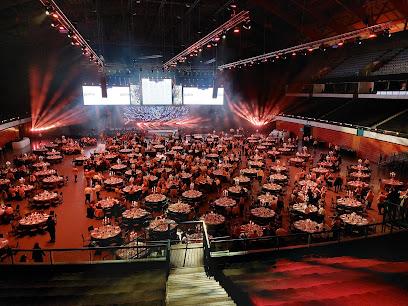
Parque Natural da Arrábida
Explore the stunning cliffs, serene beaches, and rich biodiversity of Parque Natural da Arrábida, a true gem for nature lovers in Portugal.
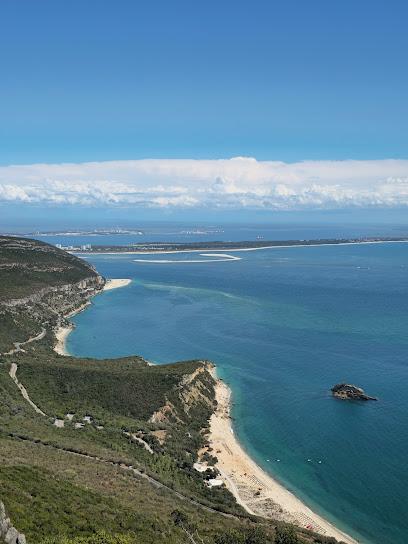
Miradouro de São Pedro de Alcântara
Experience stunning panoramic views of Lisbon at Miradouro de São Pedro de Alcântara, a must-see observation deck in the heart of the city.
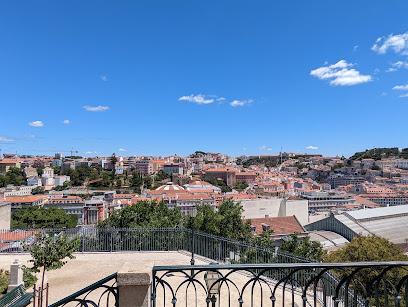
Essential places to dine
Casa Santiago - O Rei Do Choco Frito
Discover Setúbal's culinary treasure at Casa Santiago - O Rei Do Choco Frito, where delicious fried cuttlefish meets stunning waterfront views.
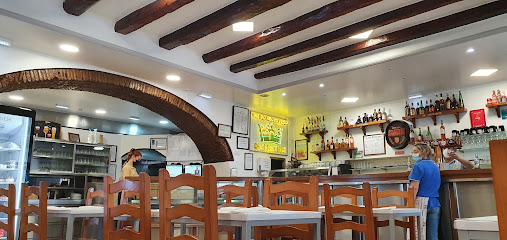
Restaurante O Miguel
Discover authentic Portuguese cuisine at Restaurante O Miguel in Setúbal - where tradition meets taste in every dish.
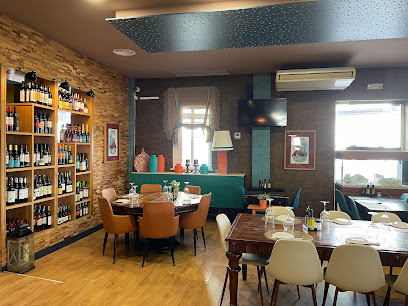
Sem Horas
Experience authentic Portuguese tapas at Sem Horas in Setúbal—where flavors meet tradition in a vibrant atmosphere.
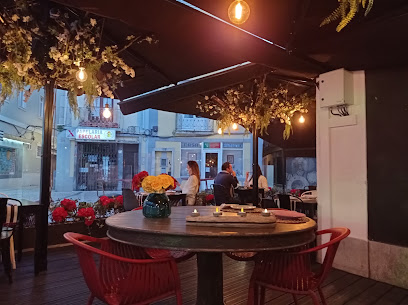
Pérola da Mourisca
Discover authentic Portuguese seafood at Pérola da Mourisca with stunning views of Baía do Sado in a cozy atmosphere.
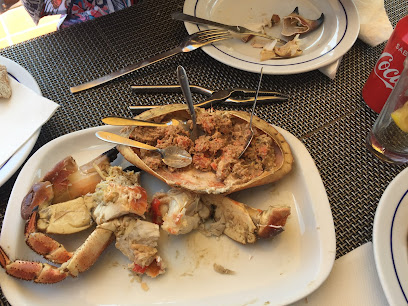
Restaurante De Pedra e Sal Hostel & Suites
Experience authentic Portuguese cuisine and cozy accommodations at Restaurante De Pedra e Sal in picturesque Setúbal.
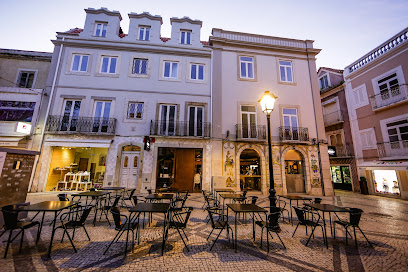
Adega do Zé
Experience authentic Portuguese cuisine at Adega do Zé in Setúbal—where local flavors come alive in a cozy atmosphere.
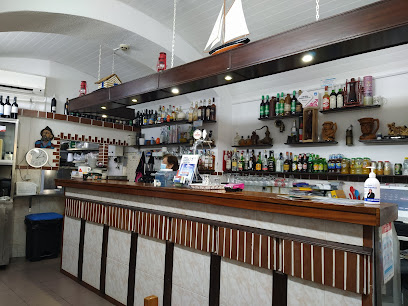
Taberna do Largo
Discover the heart of Portugal through authentic flavors at Taberna do Largo in Setúbal.
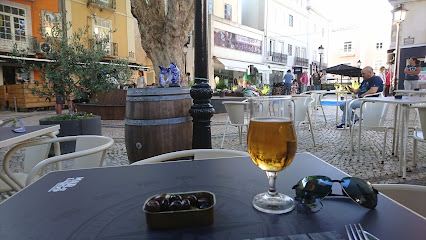
Pinga Amor Restaurante Marisqueira
Discover Pinga Amor Restaurante Marisqueira - where fresh seafood meets warm hospitality in the heart of Setúbal.
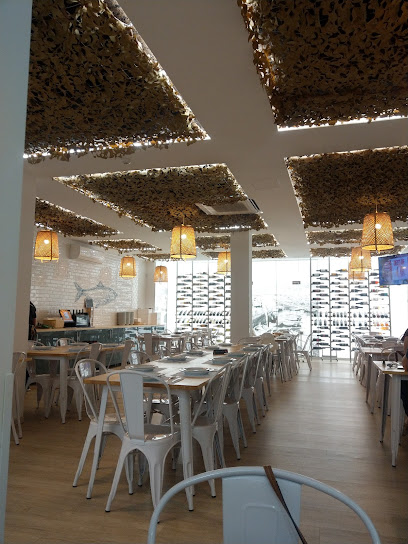
Tasca da Avenida
Experience authentic Mediterranean flavors at Tasca da Avenida in Setúbal - a must-visit culinary destination for every food lover.
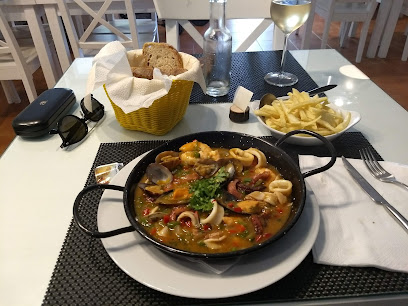
Carnes do Convento
Discover Carnes do Convento in Setúbal for an authentic taste of Portugal with exquisite meat dishes and local wines.
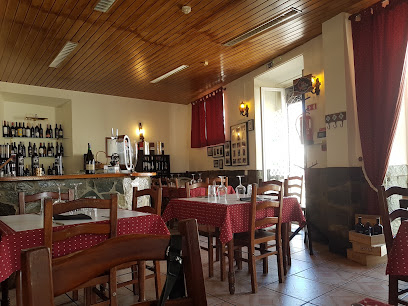
Taberna Típica O Pescador II
Experience authentic Portuguese seafood at Taberna Típica O Pescador II in Setúbal - a culinary gem loved by locals and tourists alike.
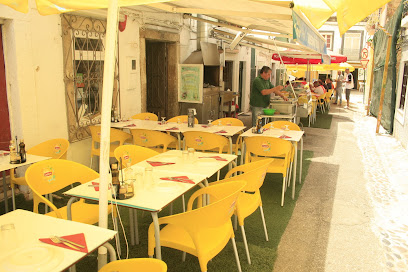
Restaurante Decor e Salteado
Discover authentic Portuguese cuisine at Restaurante Decor e Salteado in Setúbal – where tradition meets flavor in every bite.
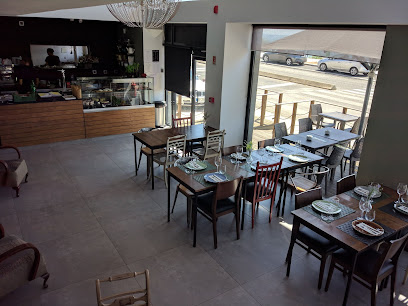
A Vela Branca
Discover A Vela Branca in Setúbal: where exquisite Portuguese cuisine meets stunning views in an inviting atmosphere.
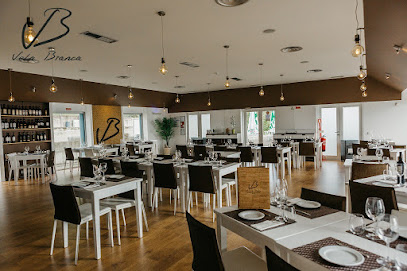
Charroco Restaurante
Discover the authentic taste of Portugal at Charroco Restaurante, where fresh seafood meets traditional culinary artistry in Setúbal.
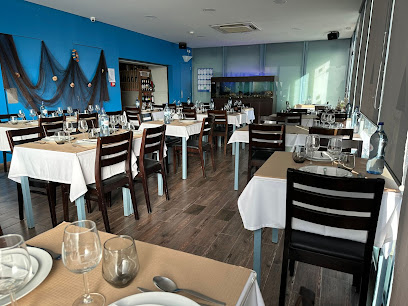
Restaurante Solar do Pato
Experience the rich flavors of traditional Portuguese cuisine at Restaurante Solar do Pato in Setúbal.
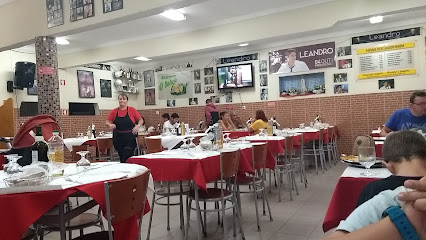
Markets, malls and hidden boutiques
Alegro
Discover Alegro, Setúbal's premier shopping mall, offering diverse stores, dining options, and entertainment for a memorable experience.
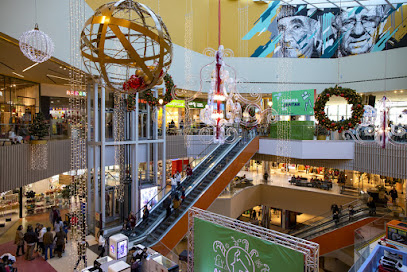
Mercado do Livramento
Experience the vibrant Mercado do Livramento, Setúbal's top market for fresh produce, local delicacies, and authentic Portuguese culture.
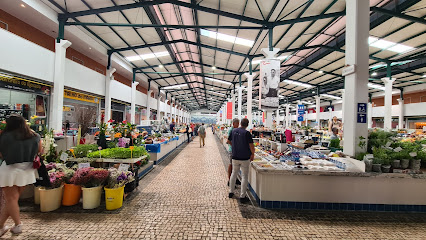
Casa da Baia de Setubal
Discover Setúbal's cultural treasures at Casa da Baía, your go-to tourist information center, wine store, and café.
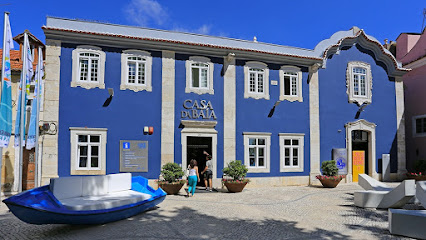
Media Markt
Explore the latest technology at Media Markt Setúbal - your go-to electronics store for gadgets and appliances.
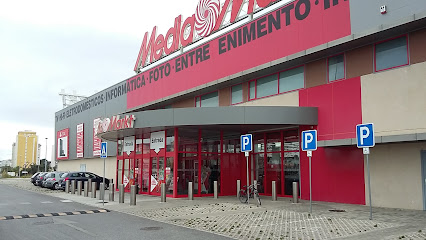
Pingo Doce Setúbal - Monte Bello
Discover local flavors at Pingo Doce Setúbal - Monte Bello, a hypermarket offering a taste of Portugal's vibrant shopping culture.
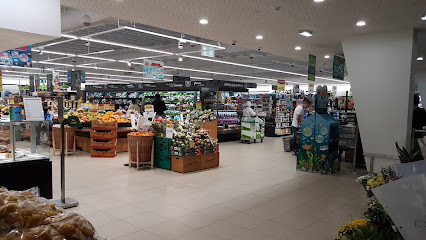
Intermarché Setúbal
Explore the vibrant Intermarché Setúbal, your one-stop destination for groceries, local delicacies, and everyday essentials in the heart of Portugal.
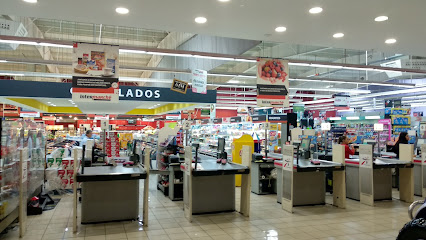
Pastelaria Delícia Latina
Savor the authentic taste of Portugal at Pastelaria Delícia Latina, a delightful pastry shop in Setúbal offering a variety of sweet treats and breakfast options.
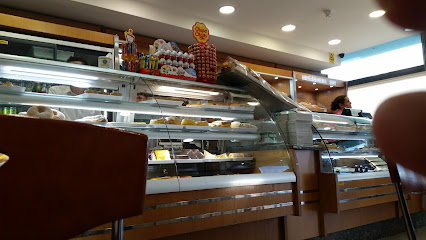
Continente Modelo
Explore diverse flavors and local products at Continente Modelo, Setúbal's premier hypermarket for all your shopping needs.
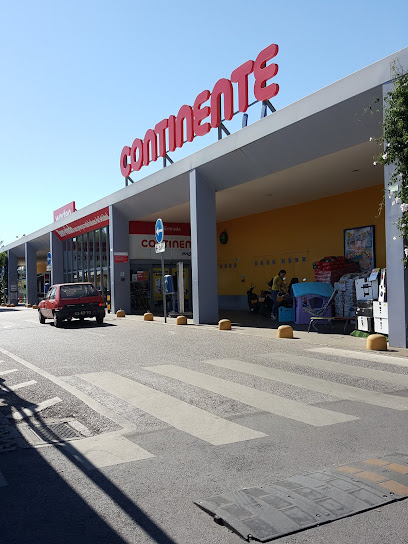
ALDI Setúbal
Explore the best of Setúbal at ALDI – your affordable supermarket for local products and everyday essentials.
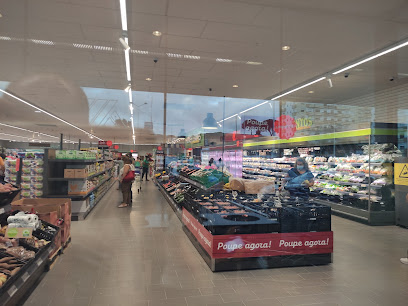
Lidl Setúbal São Sebastião
Discover Lidl Setúbal São Sebastião - the ultimate discount supermarket with fresh local products and unbeatable prices for your travel needs.
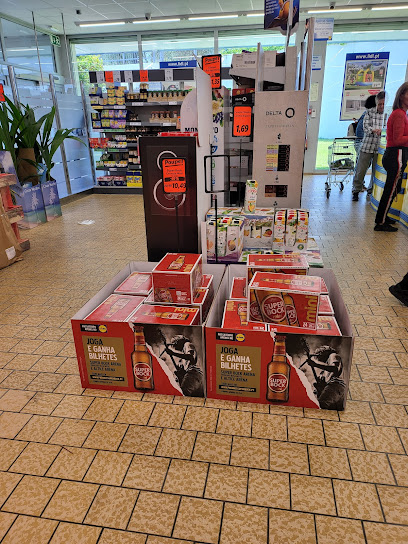
Castanha Dourada
Experience the sweet taste of Portugal at Castanha Dourada, Setúbal's premier pastry shop and breakfast destination.
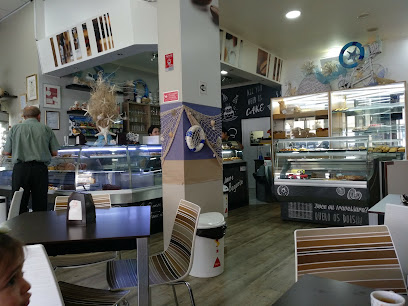
Shopping Aranguez
Discover the vibrant Shopping Aranguez in Setúbal, Portugal, where retail therapy meets dining and entertainment in a lively atmosphere.
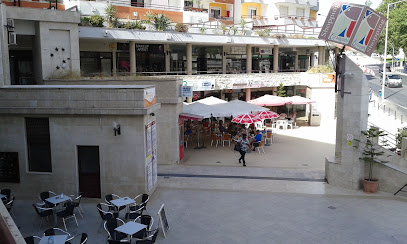
Sport Zone Alegro Setúbal
Explore Sport Zone Alegro Setúbal for top-notch sportswear, exceptional service, and a vibrant shopping experience tailored for sports enthusiasts.
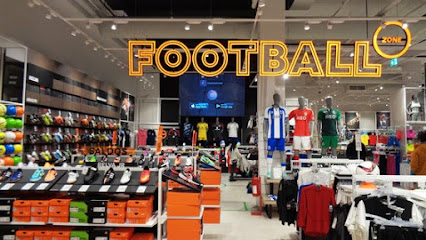
Sports Direct
Explore Sports Direct in Setúbal for affordable sportswear, footwear, and gear for all your outdoor adventures in this beautiful coastal city.
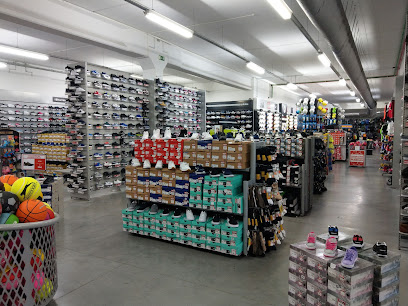
Agriloja de Setúbal
Explore Agriloja de Setúbal: Your go-to farm shop for local produce, gardening supplies, and unique home goods in the heart of Setúbal.
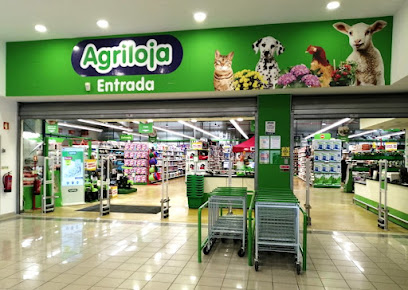
Essential bars & hidden hideouts
Rockalot Praia
Rockalot Praia: A vibrant bar in Setúbal offering stunning views, local drinks, and lively entertainment for an unforgettable experience.
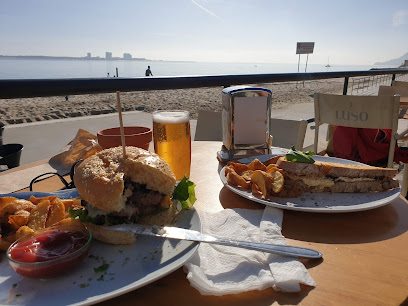
Bar Absurdo
Experience the vibrant nightlife at Bar Absurdo in Setúbal, where great drinks and a lively atmosphere come together for an unforgettable night out.
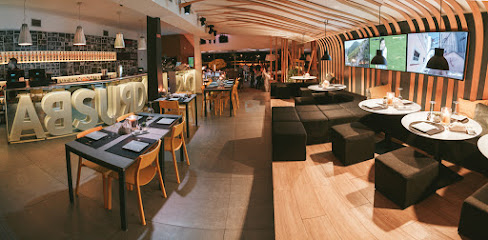
Beco da Ribeira
Discover the lively spirit of Setúbal at Beco da Ribeira, a charming bar offering delightful drinks and a welcoming atmosphere.
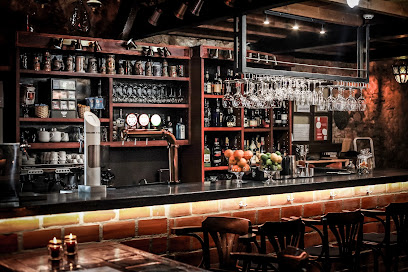
Best Coffee Lounge
Experience the perfect blend of coffee and culture at the Best Coffee Lounge in Setúbal, where every sip tells a story.
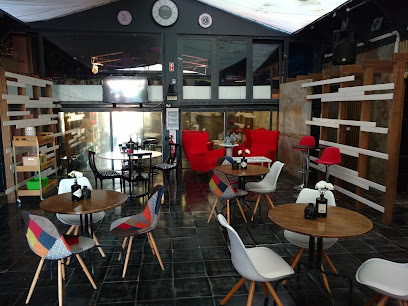
DEJA VU
Experience the vibrant nightlife at DEJA VU in Setúbal, a bar that promises an unforgettable evening of music, laughter, and local culture.
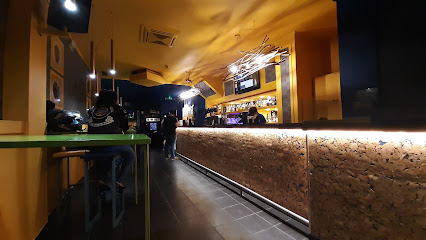
Champions Pub
Experience the vibrant atmosphere and delicious drinks at Champions Pub, Setúbal's favorite bar, perfect for unwinding after exploring this beautiful city.
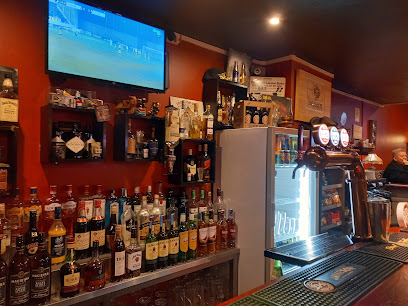
Pátio 329
Experience the vibrant nightlife of Setúbal at Pátio 329, a lively bar offering eclectic drinks and an energetic atmosphere for all visitors.
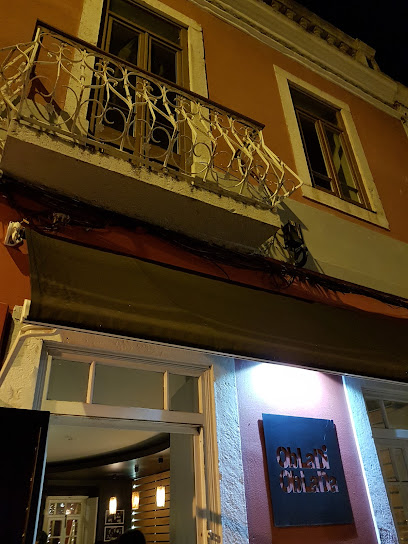
Skál Artesanal - Craft Beer & Sports Bar
Discover Skál Artesanal, Setúbal's premier craft beer and sports bar, offering a vibrant atmosphere and a diverse selection of local brews.
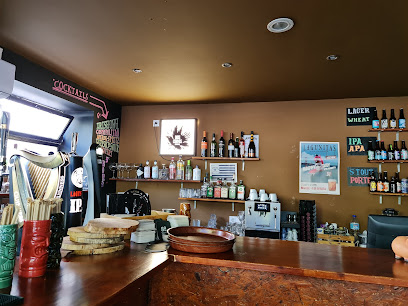
La Bohème
La Bohème: Setúbal’s vibrant bar offering a unique blend of local culture, delicious drinks, and unforgettable nightlife experiences.
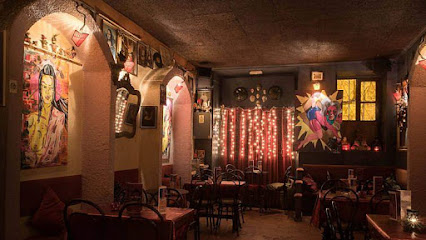
Feel Setúbal
Experience the vibrant nightlife of Setúbal at Feel Setúbal, where great drinks and a lively atmosphere await every visitor.
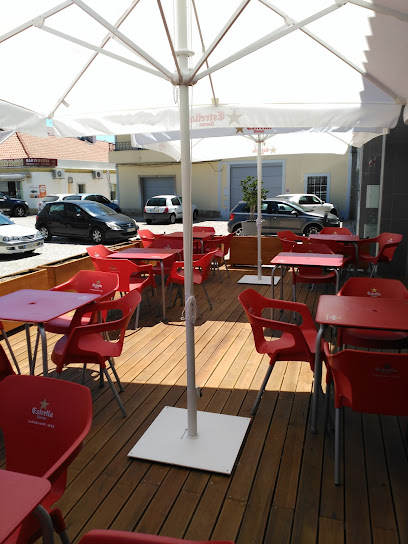
Marina Lounge
Discover the vibrant Marina Lounge in Setúbal, where stunning coastal views meet refreshing drinks and a lively atmosphere for every tourist.
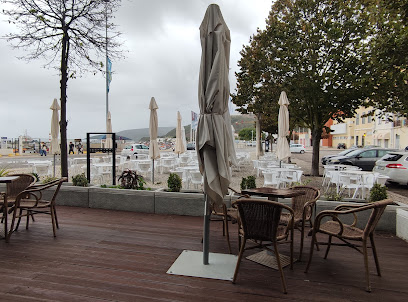
Crazy Dolphin Pub
Discover Crazy Dolphin Pub in Setúbal - a lively spot for drinks, music, and unforgettable nightlife experiences.
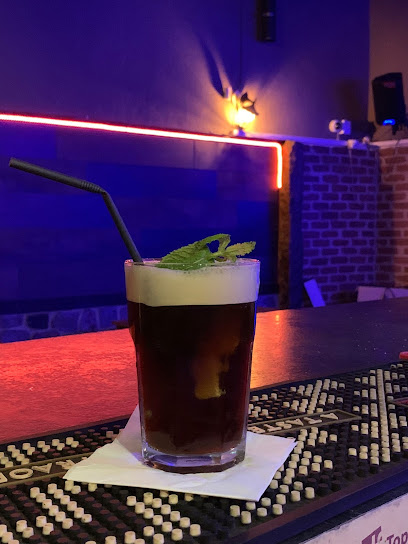
Old Pub Setúbal
Experience the vibrant nightlife at Old Pub Setúbal, the perfect spot for drinks, live music, and mingling with locals in a lively atmosphere.
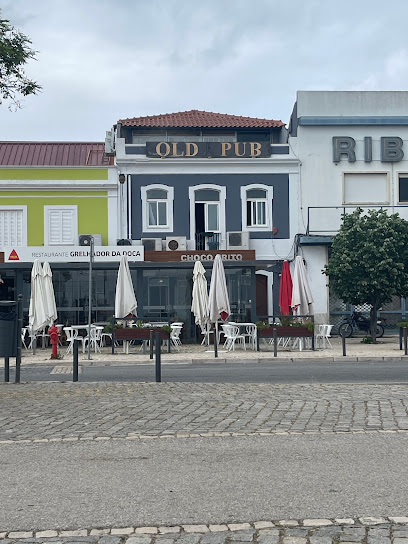
Bar A Morgadinha
Experience the vibrant nightlife of Setúbal at Bar A Morgadinha, where friendly service meets great drinks in a cozy atmosphere.
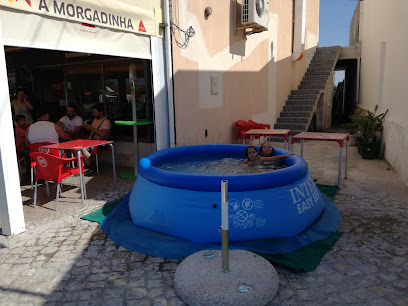
Travel experiences inspired by this city
Explore more travel diariesLocal Phrases
-
- HelloOlá
[oh-LAH] - GoodbyeAdeus
[ah-DAY-oosh] - YesSim
[seem] - NoNão
[now] - Please/You're welcomePor favor/De nada
[por fah-VOR/deh NAH-dah] - Thank youObrigado
[oh-bree-GAH-doo] - Excuse me/SorryCom licença/Desculpe
[kohm lee-SEN-sah/deh-SKOO-puh] - How are you?Como estás?
[KOH-moo ehs-TAHS] - Fine. And you?Estou bem. E tu?
[ehs-TOH-oo behn/eh too] - Do you speak English?Falas inglês?
[FAH-lahs een-GLESH] - I don't understandNão entendo
[now ehn-TEN-doo]
- HelloOlá
-
- I'd like to see the menu, pleaseGostaria de ver o menu, por favor
[goh-STAH-ree-ah deh vehr oo MEH-noo/por fah-VOR] - I don't eat meatNão como carne
[now KOH-moo KAHR-neh] - Cheers!Saúde!
[sow-DAY] - I would like to pay, pleaseGostaria de pagar, por favor
[goh-STAH-ree-ah deh pah-GAHR/por fah-VOR]
- I'd like to see the menu, pleaseGostaria de ver o menu, por favor
-
- Help!Socorro!
[soh-KOH-roh] - Go away!Vai-te embora!
[VAH-ee-teh ehm-BOH-rah] - Call the Police!Chama a Polícia!
[SHA-mah ah poh-LEE-see-ah] - Call a doctor!Chama um médico!
[SHA-mah oom MEH-dee-koo] - I'm lostEstou perdido
[ehs-TOH pehr-DEE-doo] - I'm illEstou doente
[ehs-TOH doo-EN-teh]
- Help!Socorro!
-
- I'd like to buy...Queria comprar...
[kay-REE-ah kohm-PRAR] - I'm just lookingEstou só a ver
[ehs-TOH soh ah vehr] - How much is it?Quanto custa?
[KWAN-too KOOSH-tah] - That's too expensiveIsso é demasiado caro
[EE-soh eh dah-mah-SYAH-doo KA-roo] - Can you lower the price?Pode baixar o preço?
[POH-deh BAI-shahr oo PREH-soo]
- I'd like to buy...Queria comprar...
-
- What time is it?Que horas são?
[kay OH-rahz sah-oo] - It's one o'clockÉ uma hora
[eh OO-mah OH-rah] - Half past (10)Meia (dez)
[MAY-ah/dehz] - MorningManhã
[MAHN-yah] - AfternoonTarde
[TAHR-deh] - EveningNoite
[NOY-teh] - YesterdayOntem
[ON-tehm] - TodayHoje
[OH-zheh] - TomorrowAmanhã
[ah-MAHN-yah] - 1Um
[oom] - 2Dois
[doh-ISH] - 3Três
[trehs] - 4Quatro
[KWAH-troo] - 5Cinco
[SEEN-koo] - 6Seis
[saysh] - 7Sete
[SEH-teh] - 8Oito
[OY-too] - 9Nove
[NOH-veh] - 10Dez
[dehz]
- What time is it?Que horas são?
-
- Where's a/the...?Onde fica o/a...?
[OHN-deh FEE-kah oo/ah] - What's the address?Qual é a morada?
[kahl eh ah moh-RAH-dah] - Can you show me (on the map)?Podes mostrar-me (no mapa)?
[POH-dehs moh-SHTR-meh (noh MAH-pah)] - When's the next (bus)?Quando é o próximo (autocarro)?
[KWAHN-doo eh oo PROH-ksee-moo (ow-toh-KAH-roo)] - A ticket (to ....)Um bilhete (para ...)
[oom bee-LEH-teh (PAH-rah)]
- Where's a/the...?Onde fica o/a...?
History of Setúbal
-
Setúbal’s origins can be traced back to Roman times when it was known as Cetobriga. The Romans established the city as an important commercial hub due to its strategic location along the Sado River. Archaeological excavations have revealed remnants of Roman baths, mosaics, and salt production facilities, attesting to the town’s ancient economic activities.
-
During the Middle Ages, Setúbal flourished as a key port and trading center. The town expanded significantly under the rule of King Afonso III in the 13th century, who granted it a charter and fostered its development. This period saw the construction of important religious and civil structures, including the Church of Santa Maria da Graça and the Castle of São Filipe.
-
Setúbal played a vital role during Portugal's Age of Discoveries in the 15th and 16th centuries. The town's shipyards were bustling with activity, building vessels that would embark on expeditions to Africa, India, and the New World. The local population also contributed significantly to the seafaring tradition, with many sailors from Setúbal joining the voyages of exploration.
-
The devastating earthquake of 1755, which struck Lisbon and much of the surrounding region, had a significant impact on Setúbal. Many buildings were destroyed, and the town had to undergo extensive reconstruction. The rebuilding effort led to the creation of new structures and urban planning initiatives, shaping the modern layout of the town.
-
The 19th century brought industrialization and modernization to Setúbal. The town became a center for sardine canning and fishing, industries that fueled its economic growth. This period also saw the construction of the Troia Peninsula’s ferry connection and the establishment of rail links, further integrating Setúbal into the national infrastructure.
-
Throughout the 20th century, Setúbal continued to grow and diversify. The town expanded its industrial base, incorporating chemical and paper industries, while also promoting tourism. The natural beauty of the Arrábida Natural Park, the rich cultural heritage, and the vibrant local festivals, such as the Festa de São Sebastião, have made Setúbal a popular destination for visitors from around the world.
Setúbal Essentials
-
Setúbal is located approximately 50 kilometers south of Lisbon. The nearest international airport is Lisbon Portela Airport (LIS). From the airport, you can take a direct train or bus to Setúbal, which typically takes around 1 to 1.5 hours. Alternatively, renting a car and driving via the A2 highway is a convenient option, taking about 45 minutes to an hour.
-
Setúbal offers various modes of transportation. The city has a reliable bus network operated by TST (Transportes Sul do Tejo), which connects different parts of the city and surrounding areas. Taxis are readily available and relatively affordable. For a more scenic route, consider taking a ferry from Setúbal to the Troia Peninsula. Car rentals are also a good option if you plan to explore the broader region at your own pace.
-
The official currency in Portugal is the Euro (EUR). Credit and debit cards are widely accepted in hotels, restaurants, and shops. However, it is advisable to carry some cash, especially for smaller establishments and markets. ATMs are plentiful throughout Setúbal, and you can withdraw cash as needed.
-
Setúbal is generally a safe city for tourists. However, like any urban area, it is wise to take standard precautions. Avoid poorly lit areas at night and be cautious of your belongings in crowded places like markets and public transport. Specific areas such as Bela Vista and some parts of the city center have higher rates of petty crimes like pickpocketing, so remain vigilant.
-
In case of emergency, dial 112 for immediate assistance, which connects you to police, medical services, and fire departments. Setúbal has several hospitals and clinics that provide medical care. Pharmacies are also available for minor health issues. It's recommended to have travel insurance that covers medical emergencies.
-
Fashion: Do dress comfortably but modestly, especially when visiting religious sites. Avoid overly casual attire in upscale restaurants. Religion: Do respect local customs, especially in churches. Avoid loud conversations and taking photos during services. Public Transport: Do validate your ticket before boarding trains and buses. Don't eat or drink on public transport. Greetings: Do greet people with a handshake and maintain eye contact. It's polite to say 'Bom dia' (Good morning) or 'Boa tarde' (Good afternoon). Eating & Drinking: Do try local seafood dishes and accompany your meal with a glass of local wine. Don’t rush through meals; dining is a leisurely activity.
-
To experience Setúbal like a local, visit the Mercado do Livramento, one of Portugal's best markets, for fresh produce and seafood. Stroll along the Avenida Luísa Todi for cafes and local shops. Engage with locals, as they are often friendly and willing to share insights about the city. Don't miss the opportunity to explore the Arrábida Natural Park for its stunning landscapes and hidden beaches.
Trending Landmark in Setúbal
-
Parque Natural da Arrábida
-
Mercado do Livramento
-
Parque Urbano de Albarquel
-
Forte de São Filipe
-
Palmela's Castle
-
Reserva Natural do Estuário do Sado
-
Castelo de Sesimbra
-
Casa da Baia de Setubal
-
Mourisca Water Mill
-
Parque do Bonfim
-
Albarquel
-
Santuario de Nossa Senhora do Cabo Espichel
-
Moscatel de Setúbal Experience
-
Praça de Bocage
-
Bacalhôa - Vinhos de Portugal
Nearby Cities to Setúbal
-
Things To Do in Lisbon
-
Things To Do in Cascais
-
Things To Do in Sintra
-
Things To Do in Évora
-
Things To Do in Caldas da Rainha
-
Things To Do in Viseu
-
Things To Do in Tomar
-
Things To Do in Badajoz
-
Things To Do in Faro
-
Things To Do in Coimbra
-
Things To Do in Huelva
-
Things To Do in Aveiro
-
Things To Do in Seville
-
Things To Do in Porto
-
Things To Do in Lamego



















